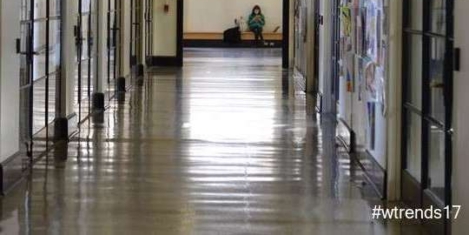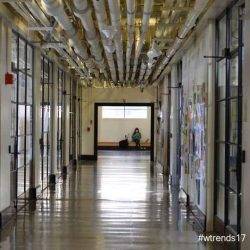December 23, 2017
The world converges on the new issue of Work & Place
We have published the new issue of Work & Place Journal and it’s our biggest and best yet. Sponsored by Steelcase, Liquidspace and The United Workplace, the new issue will shortly be published in its Spanish language version. Its overall readership is now nearly 100,000 so it’s not just bigger and better, it is even more influential. I would sum up its core theme as convergence. The essential idea behind this is the lack of any sort of meaningful distinction in a traditional sense between the physical, digital and cultural workplaces. These were once pretty clearly demarcated spheres of personal and organisational influence. Their overlap and integration define the greatest puzzles we face in the workplace in the early 21st Century. Some of these are addressed in the features included in this edition of Work & Place. They include Despina Katsikakis looking at what the idea of flexibility means, Neil Usher gets back to basics with his take on the elemental workplace, Beatriz Arantes tears down the barriers to creativity, Christine Kohlert and Scott Cooper offer their take on creative work, Rob Leslie-Carter offers a considered perspective on the current status of artificial intelligence and automation and Aki Stamatis considers the right to disconnect that is now becoming a global problem with local solutions (more…)





 Impostor syndrome (where we feel like we are ‘faking it’ at the job we are doing) could be holding back many senior executives from realising their potential – according to new research from Dropbox on the state of teamwork within businesses in the UK. The research, which marks the launch of a new study, conducted in conjunction with philosophers at The School of Life reveals that 80 percent of Chief Executive Officers (CEOs) and 81 percent of Managing Directors say they sometimes feel ‘out of their depth’ and as if they are ‘struggling’ in their role. The research investigates behaviours in business that are limiting to great teamwork. Being averse to disagreeing with others – often seen as a typically British trait – is identified as a key issue holding back teams within British business. The data also claims that two thirds of British workers (69 percent) say that they aren’t comfortable disagreeing with others at work.
Impostor syndrome (where we feel like we are ‘faking it’ at the job we are doing) could be holding back many senior executives from realising their potential – according to new research from Dropbox on the state of teamwork within businesses in the UK. The research, which marks the launch of a new study, conducted in conjunction with philosophers at The School of Life reveals that 80 percent of Chief Executive Officers (CEOs) and 81 percent of Managing Directors say they sometimes feel ‘out of their depth’ and as if they are ‘struggling’ in their role. The research investigates behaviours in business that are limiting to great teamwork. Being averse to disagreeing with others – often seen as a typically British trait – is identified as a key issue holding back teams within British business. The data also claims that two thirds of British workers (69 percent) say that they aren’t comfortable disagreeing with others at work.




 Those working within the built environment are already in the change business, was the view of Neil Usher of
Those working within the built environment are already in the change business, was the view of Neil Usher of 







December 7, 2017
What P T Barnum can teach us about the facilities management circus
by Mark Eltringham • Architecture, Comment, Facilities management, Workplace
Does any of this describe you? “You have a need for other people to like and admire you, yet you tend to be critical of yourself. While you have weaknesses you are generally able to compensate for them. You have considerable yet hidden strengths that you have yet to turn to your advantage. Self-controlled on the outside, you are slightly insecure inside. At times you have serious doubts as to whether you always make the right decision. You prefer a certain amount of change and become dissatisfied when hemmed in by limitations. You pride yourself as an independent thinker and do not accept the statements of others without satisfactory proof. But you also think it can be unwise to be too frank in revealing too much about yourself.” Does this sound familiar? Well it should because that is how most people see themselves.
(more…)